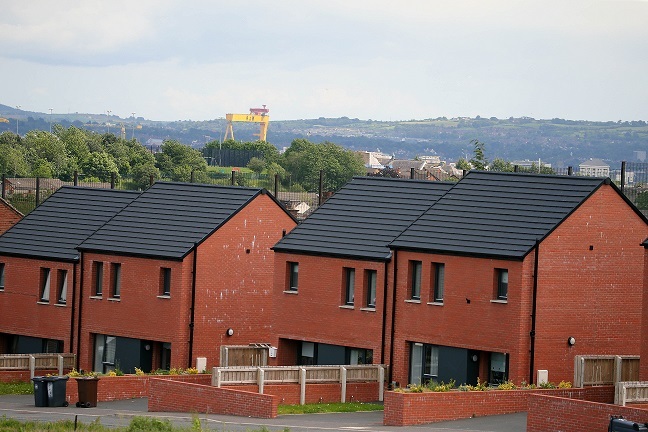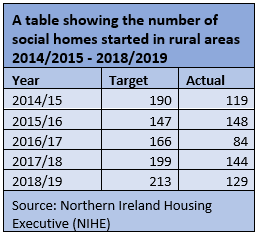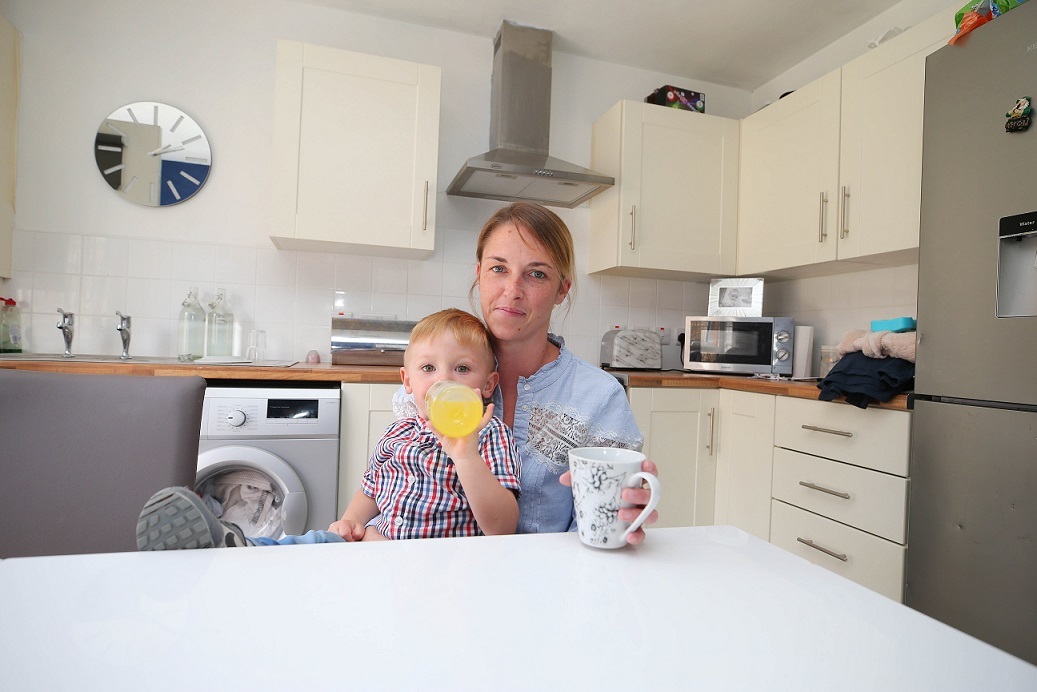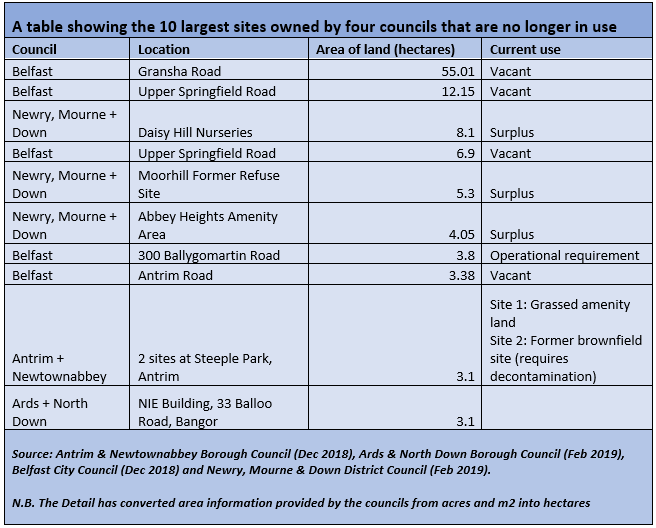PRESSURE is growing for more social homes to be built in Northern Ireland as new analysis predicts it could take another 22 and a half years to tackle the current waiting list.
The first of The Detail’s special two-day report on social housing revealed yesterday that more people waiting to be allocated a social home are in priority need of housing than ever before as concerns grow over the impact of welfare reforms.
In exclusive analysis carried out for The Detail, commentator and journalist Paul Gosling estimates that Northern Ireland’s social housing stock needs to increase by 30% in order to provide enough homes for the 37,859 applicants who were on the waiting list at the end of March.
In his commentary, which is published today and can be read here, he said: “At the current rate of house building it would take 22 and a half years to build enough homes to meet the demand. Except, of course, many of the applicants currently on the waiting list would have died in the meantime.”
He added: “These figures represent a social housing crisis of too few homes being built. It is made much worse by a political dispute over the future of the Northern Ireland Housing Executive – a conflict that it seems cannot be resolved while the Executive and Assembly do not function.”
The Detail can also reveal today that:
- While Stormont achieved targets it set for the number of new social homes started over eight consecutive years since 2010, it failed to meet its target for the 2018/2019 financial year;
- In addition, targets for new social homes started in rural areas were only achieved once since 2014/2015;
- Officials at the Department for Communities (DfC) have also reduced the number of new social homes they plan to start building between 2016 and 2021 from 9,600 to 7,600;
- Meanwhile the Northern Ireland Housing Executive (NIHE) believes an additional 14,995 new social homes are needed over the next five years until the end of March 2023,
- Northern Ireland is still the only region in the UK without a developer contribution scheme - either through a financial contribution or by introducing a quota on the number of new homes in a development that must be affordable or social – despite this being identified in Stormont’s first housing strategy as one way to provide more homes and the required legislation to facilitate this already existing.
Housing experts have warned that Stormont’s new social homes programme is not keeping up with the increased demand for housing and have called for more investment.
Concerns have also been raised about the capability of housing associations to continue to build in future if a decision which restricts their access to private financing is not reversed.
The roll-out of welfare reforms has also been identified as a major concern – both for households being able to pay their rent and for the ability of housing associations to continue to build new homes if their tenants fall into arrears.
Radius Housing Association director of communities Eileen Patterson said: “I believe the biggest challenge to the housing market in Northern Ireland is affordability.
“Many people are excluded from home ownership because of the tightening mortgage credit and the need for a substantial deposit. Private rented accommodation can be costly in some areas and short in supply in others and, even in social housing, the changes to welfare benefits and introduction of Universal Credit are making it very difficult for tenants to be able to meet their rental liability.”
There is also an ongoing debate around how to solve the financial crisis facing the Housing Executive which estimates it requires a cash boost of £7.1bn over the next 30 years to help maintain its current housing stock.
Other initiatives to increase the supply of social and affordable homes, as outlined in Northern Ireland’s first ever housing strategy, and a Fresh Start Agreement commitment to reform social housing provision have failed to be fully realised in the absence of a functioning Executive at Stormont.
Chartered Institute of Housing policy and engagement manager Justin Cartwright said: “Social housing creates stability and builds communities. It is a housing option that reduces poverty, enables people to live independently, and addresses homelessness. It contributes positively to many societal outcomes, saving money in areas of public spending such as health.
“It also plays an important role in reducing the level of housing stress in Northern Ireland. Government recognises this; reducing housing stress is one aim of the Programme for Government and the Social Housing Development Programme is a primary way of achieving it.
“However, despite the relatively ambitious social housebuilding programme, housing stress levels are going the wrong way, so it is important that an investment level is secured that reduces housing stress.”
Stormont’s most recent Programme for Government (PfG) committed to invest approximately £147m into social housing, co-ownership schemes and initiatives in 2018/2019 to prevent homelessness and help people live independently.
It also said the NIHE will provide £72.8m to help around 17,000 households through its Supporting People Programme – which aims to provide vulnerable people with more independence and often benefits those living in purpose-built accommodation.
A body representing housing associations has called for this budget to be increased.
Patrick Thompson, deputy chief executive of the Northern Ireland Federation of Housing Associations (NIFHA), said the programme saves the public purse £1.90 for every £1 spent in terms of costs associated with hospital admissions, health and social care referrals and crime prevention.
He added: “Supporting People funding hasn’t been increased for years and for accommodation-based services has actually been cut. It is imperative at a time of rising costs for service providers, that the cut is reversed to ensure that the quality service being provided can continue, and a realistic programme of funding that meets existing and future needs is implemented.”
DfC told The Detail a total of £178.4m was invested in 2018/2019, of which £121.6m was for social housing. A spokesperson said this resulted in 1,786 new social homes started, of which 200 were shared housing, and 5% of new build homes were accessible to wheelchairs.
They also said the funding allowed 1,496 first-time buyers to buy a new home through co-ownership or similar schemes, provided housing advice to 7,770 people resulting in homelessness being prevented in 456 cases and supported approximately 19,000 households to live independently through the Supporting People Programme.
The spokesman added: “Following analysis of the extensive consultation responses in relation to the review of social housing allocations; the department is considering next steps and what might be progressed in the absence of a minister. The 20 proposals for change build on the strengths of the current scheme; enabling it to work more efficiently and effectively for those in housing need.
“The department has proposals for how a returning Executive can meet the investment challenge of the Housing Executive. These await minsters.”

 By
By








